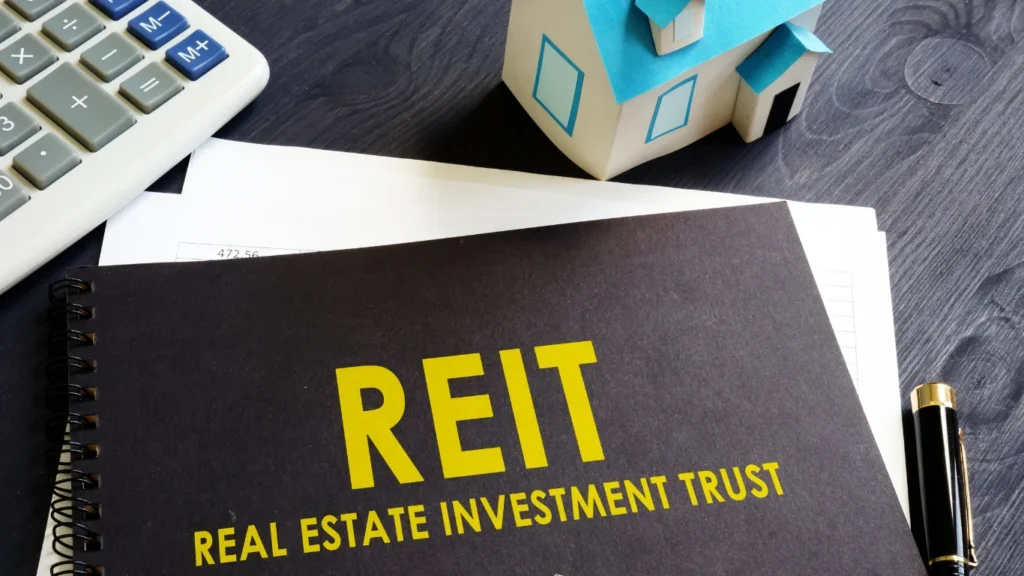Real estate investing is a tricky field, especially when working with little to no money. However, the good news is that there are numerous strategies of how to invest in real estate with little money. Whether you’re looking to build wealth or simply check the property market for available options, this guide will discuss various methods for investing in real estate with minimal cash outlay.
Understanding Real Estate Investment Basics
Before exploring specific strategies, it’s essential to grasp the fundamentals of real estate investing. Real estate investing involves buying property to gain a return on investment (ROI). This ROI can come from rental income, property appreciation, or both.
Types of Real Estate Investments

- Residential Properties: These include single-family homes, apartments, and multi-family units. They are usually easier to manage, making them ideal for beginners looking to delve into the real estate market.
- Commercial Properties: These are properties used for business purposes, such as office buildings, retail spaces, and warehouses. They often require more capital and expertise but can yield higher returns.
- Land: Investing in undeveloped land can be a long-term strategy, as it may appreciate significantly over time.
- Real Estate Investment Trusts (REITs): Companies who finance, manage, or own revenue-generating real estate. REITS allow you to gain access to and experience the market without actually owning anything.
Strategies for Investing with Little Money
1. House Hacking
House hacking is a popular strategy among new investors. In this case, you buy a multifamily building, live in one of the apartments, and rent out the rest. You can live for free or at a reduced cost if the rental income covers your mortgage and other costs.
2. Live-In, Then Rent
Another approach is to buy a less expensive home, live in it for a few years, and then convert it into a rental property. This strategy allows you to take advantage of lower down payment options for primary residences.
- FHA Loans: These loans are particularly beneficial as they offer lower interest rates and down payment requirements than traditional investment property loans.
3. Real Estate Crowdfunding
Using crowdfunding websites, you can pool your funds with those of other investors to finance greater real estate projects. With this approach, commercial real estate can be invested in with little financial outlay and without the hassles of direct ownership.
Platforms to Consider: Websites like Fundrise and RealtyMogul allow you to start investing with as little as £10, making it an attractive option for those with limited funds.
4. Wholesaling Properties
In wholesaling, distressed properties are located, a purchase price is negotiated with the seller, and the contract is subsequently sold to an investor for a fee. Due to the fact that you are not buying the property, this technique takes little to no upfront capital.
5. Master Lease Options
A master lease option allows you to lease a property, leaving the option open to buy it later. This strategy can be beneficial for larger properties, such as apartment buildings.
- How It Works: You manage the property, pay the owner a monthly fee, and keep any rental income above that amount. This can help you save for a down payment while generating cash flow.
6. Borrowing Against Equity
If you are a homeowner, you may want to consider accessing your home equity through a Home Equity Line of Credit. This allows you to borrow against the equity in your home to finance new investments.
7. Seller Financing
In certain situations, sellers might be open to financing the acquisition of their property. Usually, with more lenient terms, this implies that you can pay the supplier directly rather than through a bank.
- Negotiation: This strategy requires good negotiation skills and a solid understanding of the property’s value.
8. Bird-Dogging
Bird-dogging involves scouting for potential investment properties and passing the leads to investors for a fee. This strategy requires no capital and can be a great way to learn about the market.
- Networking: Building relationships with local investors can help you find opportunities and earn finder’s fees.
9. Real Estate Investment Trusts (REITs)
If you want a more passive approach, consider investing in REITs. These companies manage real estate portfolios and pay dividends to shareholders.

- Accessibility: Many REITs allow you to invest with relatively low minimums, making them an excellent option for those with limited funds.
10. Utilizing Government Programs
Certain government programs are aimed at assisting first-time homebuyers and investors. Consider options like VA loans, USDA loans, and local grants to help reduce your upfront costs.
- Research: Understanding the eligibility requirements for these programs can open doors to affordable financing options.
Building Your Knowledge Base

1. Stay Educated
Real estate investing necessitates a solid understanding of the market; think about enrolling in classes, going to workshops, or reading real estate investing books.
2. Networking
Make connections with other investors by joining internet forums or real estate investment clubs. Networking can provide valuable insights, mentorship opportunities, and potential partnerships.
3. Stay Informed
Stay informed on economic indicators, real estate values, and market developments. This information can help you find opportunities and make well-informed investing decisions.
Conclusion – How to Invest in Real Estate With No Money?
Learning how to invest in real estate with little money is not only possible but can also be a rewarding venture. You can step a foot into the market without a significant financial commitment by exploring various strategies such as house hacking, real estate crowdfunding, and wholesaling. Remember, the key lies in your knowledge, networking, and staying informed about market trends. So, roll up your sleeves, do your research, and get ready to embark on your real estate investment journey!
Can I invest in real estate with a small amount of money?
Yes, real estate investing can start with limited funds. Options include Real Estate Investment Trusts (REITs), fractional ownership platforms, and reinvestment strategies. Some platforms allow investments starting from as little as £100.
What are some creative ways to invest in property with little money?
Creative strategies include seller financing, lease options, and wholesaling property deals. You can also consider joint ownership or partnerships to pool resources or use equity from an existing property if you own one.
How important is it to have a financial buffer when investing in property?
Having a financial buffer is crucial for long-term success in property investment. Maintaining two to four months of rental income as a buffer for unexpected costs is recommended. This helps cover unforeseen expenses and protects against periods without rental income.
Should I hire a property manager for my investment property?
Hiring a property manager is beneficial, especially for new investors. They handle tenant screening, maintenance, and legal compliance, saving you time and potentially money. Reduced vacancies and proper property maintenance often offset the cost (typically 7-8% of rental income).






